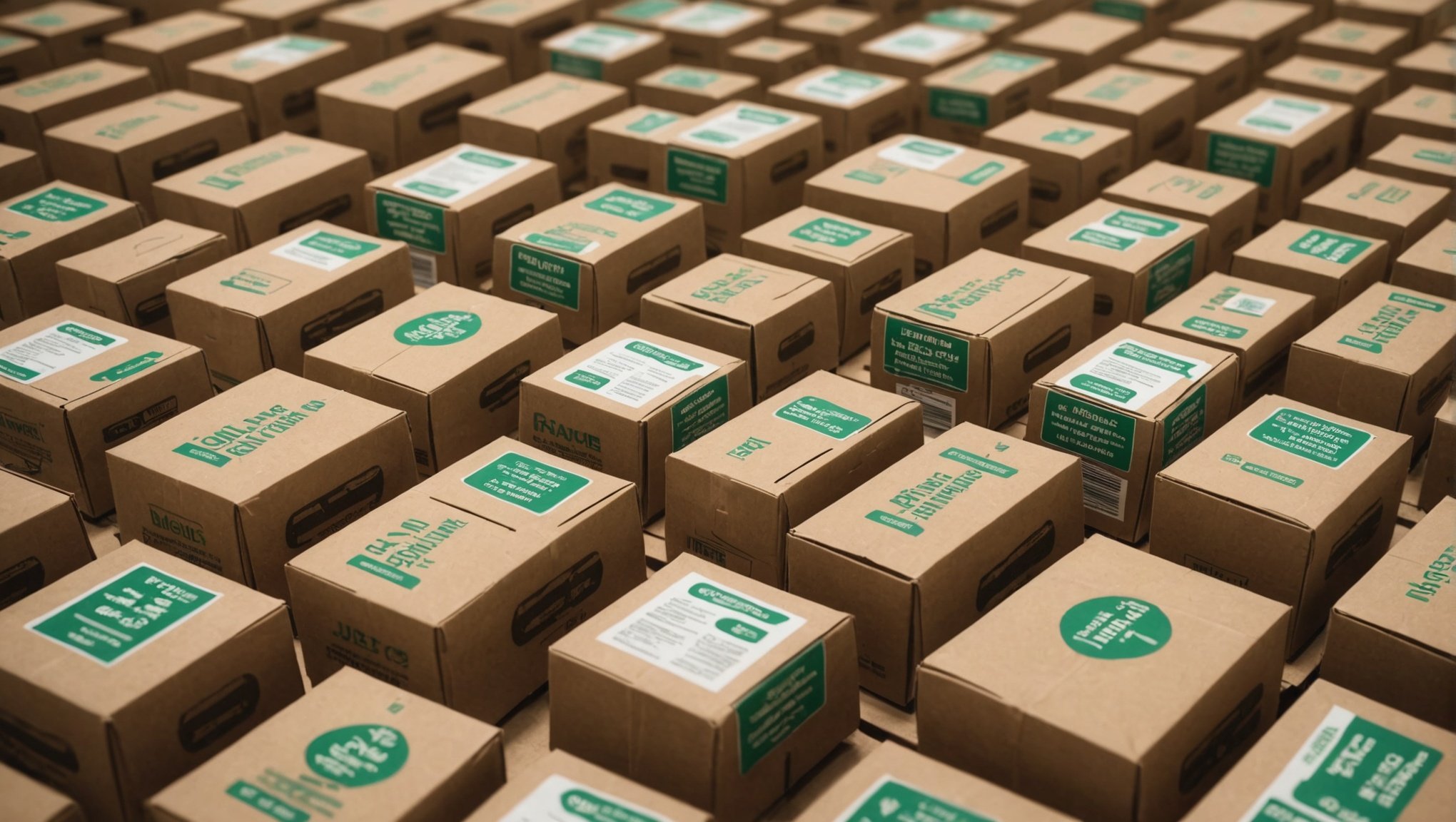As sustainable practices become increasingly critical in the modern world, UK food manufacturers are actively seeking ways to lessen their environmental footprint. One area of focus is sustainable packaging. With the UK public becoming more environmentally conscious, food manufacturers must adapt and adopt eco-friendly packaging solutions. This article explores the benefits of sustainable packaging for UK food manufacturers, highlighting the positive impacts on the environment, consumer perception, and overall business performance.
The Environmental Impact of Sustainable Packaging
Sustainable packaging plays a crucial role in reducing the environmental impact of the food manufacturing industry. By opting for eco-friendly materials, manufacturers can help combat the adverse effects of traditional plastic packaging.
In the same genre : Empowering tomorrow: discover Vallourec's new energies solutions
Reducing Plastic Waste
Traditional plastic packaging is a significant contributor to environmental pollution. It takes hundreds of years to degrade, during which it can wreak havoc on marine life and ecosystems. By choosing biodegradable or recycled materials, food manufacturers can significantly reduce the amount of plastic waste entering the environment. Biodegradable packaging, such as those made from plant-based materials, breaks down naturally and reduces the burden on landfills.
Lowering Carbon Footprint
The production of plastic packaging involves significant energy consumption and greenhouse gas emissions. In contrast, sustainable packaging often requires less energy and emits fewer carbon emissions during production. By switching to eco-friendly materials, manufacturers can reduce their carbon footprint and contribute to the global effort to mitigate climate change.
Also to discover : What Are the Strategies for UK Fintechs to Expand into Emerging Markets?
Conservation of Natural Resources
Sustainable packaging often involves the use of recycled materials, which helps conserve natural resources. For instance, using recycled paper or cardboard reduces the demand for virgin wood pulp, thereby conserving forests. This practice not only helps preserve biodiversity but also ensures that resources are available for future generations.
Enhancing Consumer Perception and Brand Loyalty
In the competitive food industry, consumer perception is a vital factor that can determine the success of a brand. Sustainable packaging can enhance a brand’s image and foster a loyal customer base.
Meeting Consumer Demand
Today’s consumers are increasingly aware of the environmental issues associated with packaging waste. They are more likely to support brands that demonstrate a commitment to sustainability. By adopting eco-friendly packaging, food manufacturers can meet the growing demand for environmentally responsible products. This approach not only attracts eco-conscious consumers but also sets a brand apart in a crowded market.
Building Trust and Credibility
Sustainable packaging can help build trust and credibility with consumers. Transparency about packaging materials and sustainability efforts can create a positive brand image. When consumers see that a company is making genuine efforts to reduce its environmental impact, they are more likely to trust and support the brand. This trust can translate into long-term customer loyalty and repeat business.
Positive Public Relations
Integrating sustainable practices can lead to positive media coverage and public relations opportunities. When a company takes steps to reduce its environmental impact, it can attract attention from the press and industry associations. This exposure can enhance brand reputation and attract new customers who value sustainability.
Cost Efficiency and Operational Benefits
While the initial investment in sustainable packaging may be higher, it can lead to long-term cost savings and operational efficiencies for food manufacturers.
Reduced Material Costs
Sustainable packaging often involves the use of recycled materials, which can be more cost-effective than virgin materials. Additionally, innovations in packaging technology have made it possible to create lightweight and durable eco-friendly packaging. These advancements can lead to reduced material costs over time.
Lower Waste Management Costs
Traditional plastic packaging contributes to significant waste management costs. By reducing the amount of non-biodegradable waste, food manufacturers can save on disposal and landfill fees. Sustainable packaging can also be designed for better recyclability, which can further reduce waste management expenses.
Improved Supply Chain Efficiency
Sustainable packaging solutions often focus on reducing the volume and weight of packaging. This can lead to improved supply chain efficiency, as lighter and more compact packaging takes up less space and reduces transportation costs. Streamlined packaging can also lead to quicker handling and distribution processes, enhancing overall operational efficiency.
Regulatory Compliance and Future-Proofing
As governments around the world, including the UK, implement stricter regulations on packaging waste and sustainability, food manufacturers must stay ahead of the curve to ensure compliance and future-proof their operations.
Adhering to Regulations
The UK government has introduced several initiatives aimed at reducing plastic waste and promoting sustainable packaging. By adopting eco-friendly packaging, food manufacturers can ensure compliance with these regulations. This proactive approach helps avoid potential fines and legal issues associated with non-compliance.
Preparing for Future Legislation
The trend towards sustainability is only expected to grow, with more stringent regulations likely to be introduced in the future. By investing in sustainable packaging now, food manufacturers can prepare for upcoming legislation and avoid the need for sudden and costly changes later. This foresight can provide a competitive advantage and help ensure long-term business viability.
Enhancing Corporate Social Responsibility (CSR)
Sustainable packaging aligns with broader corporate social responsibility (CSR) goals. Demonstrating a commitment to environmental sustainability can enhance a brand’s CSR profile and appeal to socially conscious investors and stakeholders. This alignment can lead to increased investment opportunities and partnerships with like-minded organizations.
Innovative Packaging Solutions and Market Opportunities
The shift towards sustainable packaging presents opportunities for innovation and market growth. Food manufacturers can leverage new packaging technologies and materials to create unique products that stand out in the market.
Embracing Innovative Materials
The development of innovative materials such as plant-based plastics, edible packaging, and compostable films opens up new possibilities for food packaging. These materials offer the same functionality as traditional packaging but with a lower environmental impact. By embracing these innovations, food manufacturers can create cutting-edge products that appeal to modern consumers.
Differentiating Products in the Market
Sustainable packaging can serve as a unique selling point that differentiates products in a competitive market. Highlighting the eco-friendly nature of packaging on product labels and marketing materials can attract environmentally conscious consumers. This differentiation can lead to increased sales and market share.
Exploring New Markets
The demand for sustainable products is growing globally. By adopting sustainable packaging, UK food manufacturers can tap into new markets and export opportunities. Sustainable packaging can make products more appealing to international consumers who prioritize eco-friendly practices.
The benefits of sustainable packaging for UK food manufacturers are numerous and far-reaching. From reducing environmental impact and enhancing consumer perception to achieving cost efficiencies and ensuring regulatory compliance, sustainable packaging offers a compelling value proposition. As the world continues to prioritize sustainability, UK food manufacturers can lead the way by adopting eco-friendly packaging solutions. This commitment to sustainability not only benefits the environment but also strengthens brand reputation, fosters consumer loyalty, and positions businesses for long-term success.
Incorporating sustainable packaging is not just a trend; it is a vital strategy for future-proofing operations and staying competitive in a rapidly evolving market. By embracing these practices, UK food manufacturers can play a pivotal role in creating a more sustainable and environmentally friendly future.






